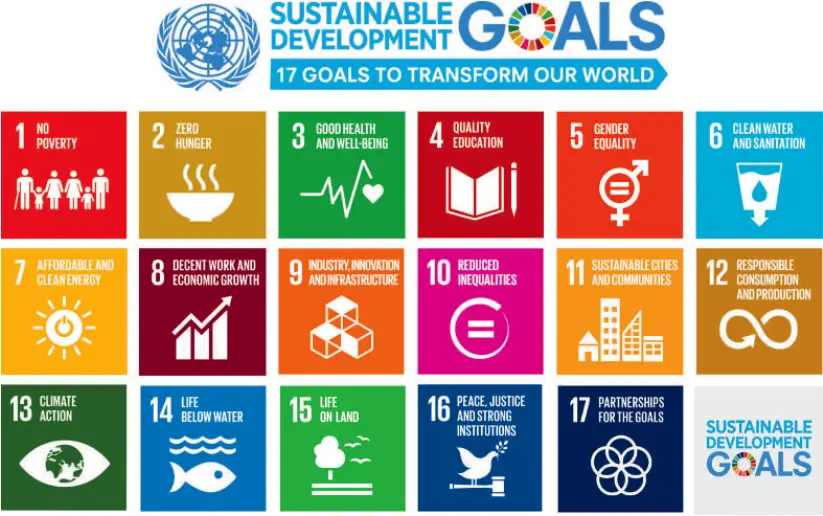Revision Notes for Class 10 IT (402) – Chapter 5 Green Skills II
Are you looking for Revision Notes of 10 IT (402) – Chapter 5 Green Skills II? You are at the right place. All the Extra Questions, Revision Notes, MCQs of 10 IT (402) – Chapter 5 Green Skills II are available here. All the study materials are completely FREE.
Sustainable development
Sustainable development is the development that satisfies the needs of the present without compromising the capacity of future generations, guaranteeing the balance between economic growth, care for the environment and social well-being.
The important principles of sustainable development are as follows:
- To carefully utilise all resources.
- To conserve resources so that they meet the demands and requirements of the future generations.
- To minimise the depletion of natural resources.
- Respect and care for all forms of life.
- People should learn to conserve the natural resources in order to protect the living beings.
- Conserving the Earth’s vitality and diversity.
- Improving the quality of human life.
- Changing personal attitude and practices towards the environment.
Importance of Sustainable development
Sustainable development is necessary for the maintenance of the environment. The importance of sustainable development are as follows:
- Proper Use of Means and Resources: Sustainable development teaches people to make use of means and resources for the maximum benefit without wastage. It helps to conserve and promote the environment.
- Development of Positive Attitude: Sustainable development brings about changes in people’s knowledge, attitude and skills. It aware the people the responsibility to use and preserve natural resources. It creates the feeling that natural resources are the common property of all and nobody can use the property according to his personal will. It helps to conserve natural and social environment.
- Development Based on People’s Participation: People’s participation is to be given priority in development work in order to achieve the aim of sustainable development. It creates the interest of local people in development work and environment conservation with the feeling of ownership.
- Limitation of Development: Limited but effective use of means and resources are enough for the people to satisfy their basic needs. Limited and non-renewable means and resources go on decreasing in globally due to over-use. Development works should be conducted as per carrying capacity.
- Long Lasting Development: Sustainable development aims at achieving the goal of economic and social development without destroying the Earth’s means and resources. It attempts to create the concept of maintaining the present work for the future and conserving the natural resources for future generation. So, due to the realisation of importance of sustainable development, now there is a transcending concern for survival of the people and planet. We need to take a holistic view of the very basis of our existence. It is important to reconcile ambitious economic development and preserving the natural resources and ecosystem.
- Sustainable Development Goals: Sustainable development has three main components economy, environment and social inclusion. It seeks to ensure economic development, while protecting the environment through participation of the societies and communities. The United Nations Sustainable Development Summit 2015, has set seventeen specific goals towards achieving sustainable development. Given are summarised in the graphic below
Goals of Sustainable development
- No Poverty
- Zero Hunger
- Good Health and Well-being
- Quality Education
- Gender Equality
- Clean Water and Sanitation
- Affordable and Clean Energy
- Decent Work and Economic Growth
- Industry, Innovation and Infrastructure
- Reduced Inequalities
- Sustainable Cities and Communities
- Responsible Consumption and Production
- Climate Action
- Life Below Water
- Life on Land
- Peace, Justice and Strong Institutions
- Partnerships for the Goals
These above 17 objectives are interrelated and often the key to one’s success will involve the issues most frequently linked to another.
They can be summarised as follows in short:
- Eradicate poverty and hunger, guaranteeing a healthy life
- Universalize access to basic services such as water, sanitation and sustainable energy
- Support the generation of development opportunities through inclusive education and decent work
- Foster innovation and resilient infrastructure, creating communities and cities able to produce and consume sustainably
- Reduce inequality in the world, especially that concerning gender
- Care for the environment combating climate change and protecting the oceans and land ecosystems
- Promote collaboration between different social agents to create an environment of peace and sustainable development.
Problems related to Sustainable development
Some problems related to sustainable development are as follows:
- Poor management of natural resources combined with growing economic activities will continue to pose serious challenges to environment.
- The most significant environmental problems are associated with resources that are renewable such as air and water. They have finite capacity to assimilate emissions and wastes but if pollution exceeds this capacity ecosystem can deteriorate rapidly.
- To assess the regenerative capacity of natural resources is difficult. In the cases of soil erosion, atmospheric pollution etc., there is substantial uncertainty about the extent and outcomes of environmental degradation.
- The overall effects of economic activities on the environment are continuously changing.
- Due to rise in income, the demands for improvement in environmental quality will increase as well as the resources available for investment but it is not mandatory in some cases as problems are observed to get worse as income rise.
- Rise in population is another problem that would further lead to severe environmental degradation in the future.
- Another challenge is rise in demand for energy as it is estimated that the total manufacturing outputs in developing countries will increase to about six times the current levels by 2030.
- Another challenge is rise in demand of food crops with the growth of population. To protect fragile soils and natural habitats, this will have to be achieved by raising yields on existing crop land.
Importance of Sustainable development
Sustainable development is necessary for the maintenance of the environment. The purpose of development work is people’s welfare. The target of development work is never achieved effectively if the adverse effects are ignored.
The importance of sustainable development are as follows:
- Proper Use of Means and Resource: Sustainable development teaches people to make low use of means and resources. The use of mineral oil, drinking water, insecticide, chemical fertilizer, forest product should be minimized. This will lead to the minimum use of means and resources for maximum benefit without wastage. It helps to conserve and promote the environment.
- Development of Positive Attitude: Sustainable development brings about changes in people’s knowledge, attitude, and skill. It aware the people of the responsibility to use and preserve, natural resources like mine, forest, land, herb, etc. It creates the feeling that natural resources are the common property of all and nobody can use the property according to his personal will. It helps to conserve natural and social environment.
- Development of Fundamental Parts: Sustainable development emphasizes on the progress of health, education, agriculture, tourism and social reform for the development of human beings. While making progress in these aspects environment conservation and promotion should be conducted ahead in an integrated way.
- Development Based on People’s Participation: People’s participation is to be given priority in development work in order to achieve the aim of sustainable development. It creates the interest of local people in development work and environment conservation with the feeling of ownership. In this way, it increases the public involvement at all levels of environment protection and promotion.
- Limitation of Development: Limited but effective uses of means and resources are enough for the people to satisfy their basic needs. However, more development works are carried on due to greed. Limited and non-renewable means and resources go on decreasing in globally due to overuse. Development works should be conducted as per carrying capacity Sustainable development aware the people of the involvement in the policy making for the concept of limit of development.
- Long lasting Development: Sustainable development aims at achieving the goal of economic and social development without destroying the earth’s means and resources. It attempts to create the concept of maintaining the present work for the future and conserving the natural resources for future generation.
Challenges of Sustainable development
The main challenges to sustainable development which are global in character include poverty and exclusion, unemployment, climate change, conflict and humanitarian aid, building peaceful and inclusive societies, building strong institutions of governance, and supporting the rule of law.
The Open Working Group of the United Nations, while acknowledging the United Nations Framework Convention on Climate Change, has proposed the following aims for its Sustainable Development Goals (SDGs) accompanied by specific targets for some.
United Nations Sustainable Development Summit (2015) sets global development goals. These goals are termed as Agenda 2030. The goals are as follows:
- End poverty in all forms everywhere.
- End hunger, achieve food security and improved nutrition and promote sustainable agriculture.
- Ensure healthy lives and well-being for all.
- Ensure inclusive and quality education for all and promote lifelong learning.
- Achieve gender equality and empower all women and girls.
- Ensure access to water and sanitation for all.
- Ensure access to affordable, reliable, sustainable and modern energy for all.
- Promote inclusive and sustainable economic growth, employment and decent work for all.
- Build resilient infrastructure, promote sustainable industrialisation and foster innovation.
- Reduce inequality within and among countries.
- Make cities inclusive, safe, resilient and production.
- Ensure sustainable consumption and production.
- Take urgent action to combat climate change and its impacts.
- Conserve and sustainably use oceans, seas and marine resources.
- Sustainably manage forests, halt and reverse land degradation, halt biodiversity loss.
- Promote peaceful and inclusive societies.
- Revitalise the global partnership for sustainable development.





